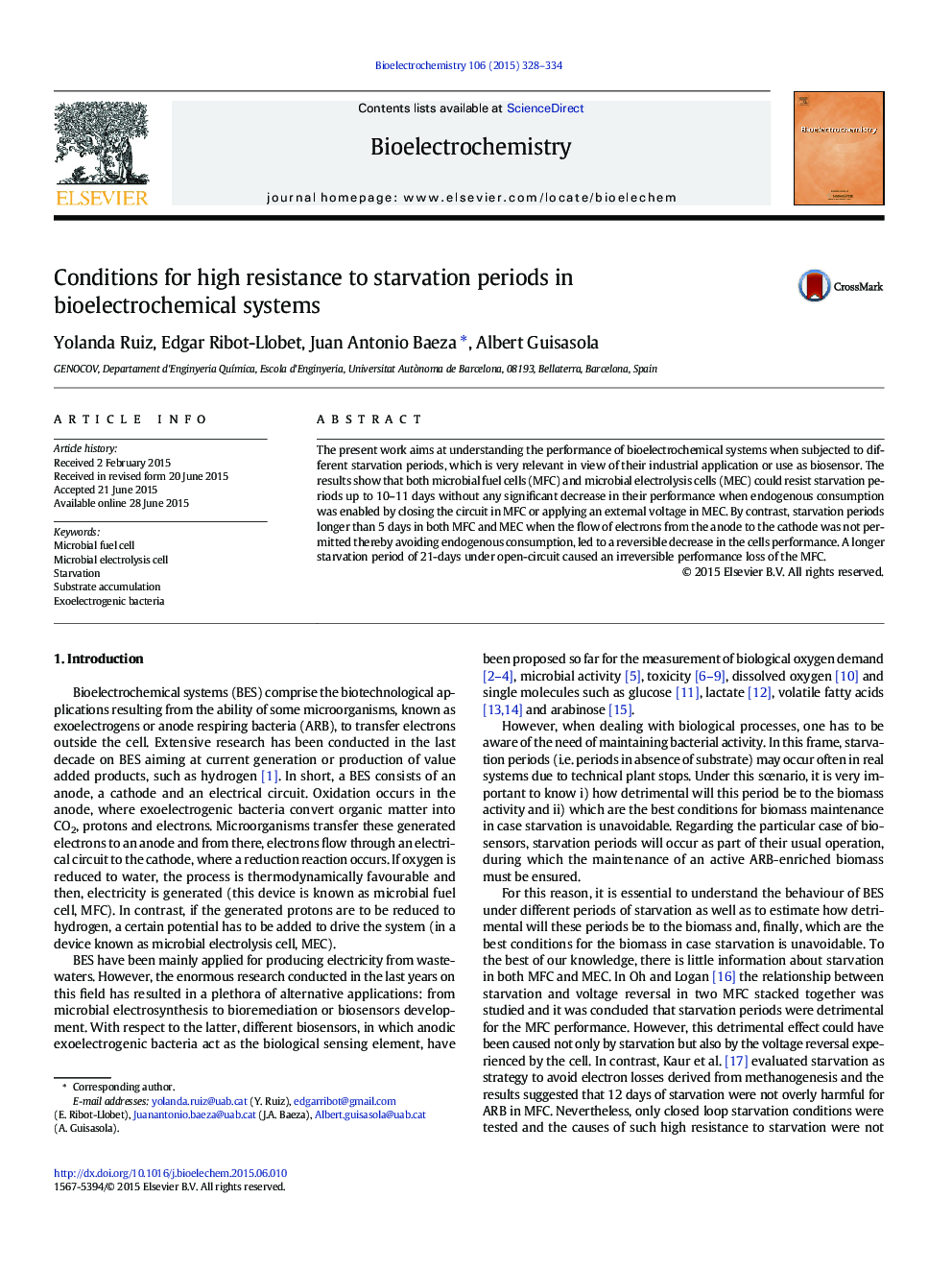| Article ID | Journal | Published Year | Pages | File Type |
|---|---|---|---|---|
| 1270742 | Bioelectrochemistry | 2015 | 7 Pages |
•MFC in open circuit conditions resisted starvation only for 5 days.•Closed circuit conditions allowed MFC to resist starvation for more than 11 days.•A starvation period of 10 days did not affect MEC with an applied voltage.•Resistance to starvation decreased to 5 days in MEC without an applied voltage.•High resistance to starvation is accomplished through endogenous consumption.
The present work aims at understanding the performance of bioelectrochemical systems when subjected to different starvation periods, which is very relevant in view of their industrial application or use as biosensor. The results show that both microbial fuel cells (MFC) and microbial electrolysis cells (MEC) could resist starvation periods up to 10–11 days without any significant decrease in their performance when endogenous consumption was enabled by closing the circuit in MFC or applying an external voltage in MEC. By contrast, starvation periods longer than 5 days in both MFC and MEC when the flow of electrons from the anode to the cathode was not permitted thereby avoiding endogenous consumption, led to a reversible decrease in the cells performance. A longer starvation period of 21-days under open-circuit caused an irreversible performance loss of the MFC.
Graphical abstractFigure optionsDownload full-size imageDownload as PowerPoint slide
